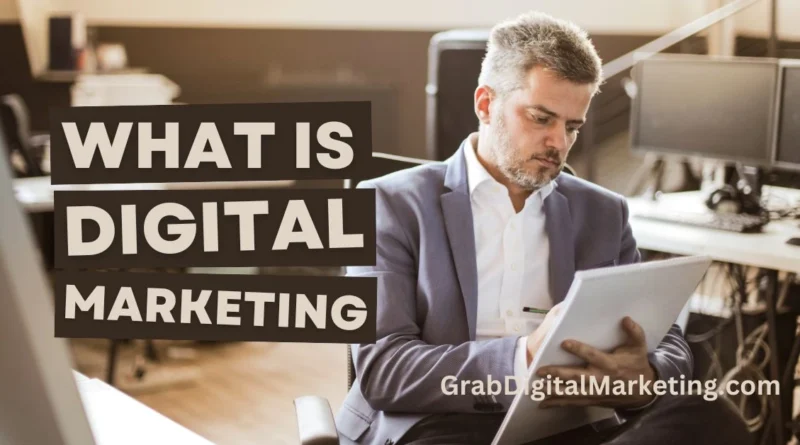What is Digital Marketing?
Digital marketing is simply the art of connecting with people online to promote a product, service, or idea. Instead of handing out brochures or airing a TV commercial, you use platforms like Google, Instagram, YouTube, and email to reach your audience—right where they already spend their time.
Table of Contents
What is Digital Marketing?
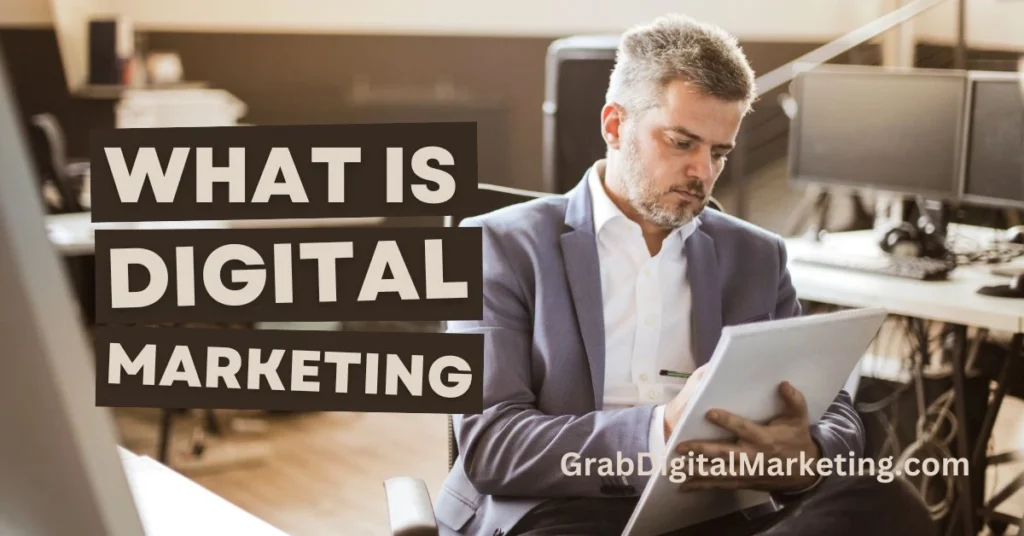
- Digital marketing is the practice of promoting products, services, or brands using digital channels and technologies such as websites, search engines, social media platforms, email, mobile apps, and more. It involves reaching potential customers through online means rather than traditional offline methods like print or broadcast advertising. Fundamentally, digital marketing leverages the power of the internet and connected devices to target users based on their interests, behaviors, demographics, and intent, creating highly personalized marketing experiences.
- At its core, digital marketing includes several key components. Search Engine Optimization (SEO) is one of the foundational tactics, focusing on improving a website’s visibility in organic search results by optimizing content, keywords, and site structure. This helps attract free, high-quality traffic from search engines like Google, Bing, and Yahoo. Alongside SEO, Paid Search or Pay-Per-Click (PPC) advertising allows businesses to buy placements on search engine results pages, displaying ads to users who are actively searching for relevant products or services.
Search Engine Optimization (SEO):
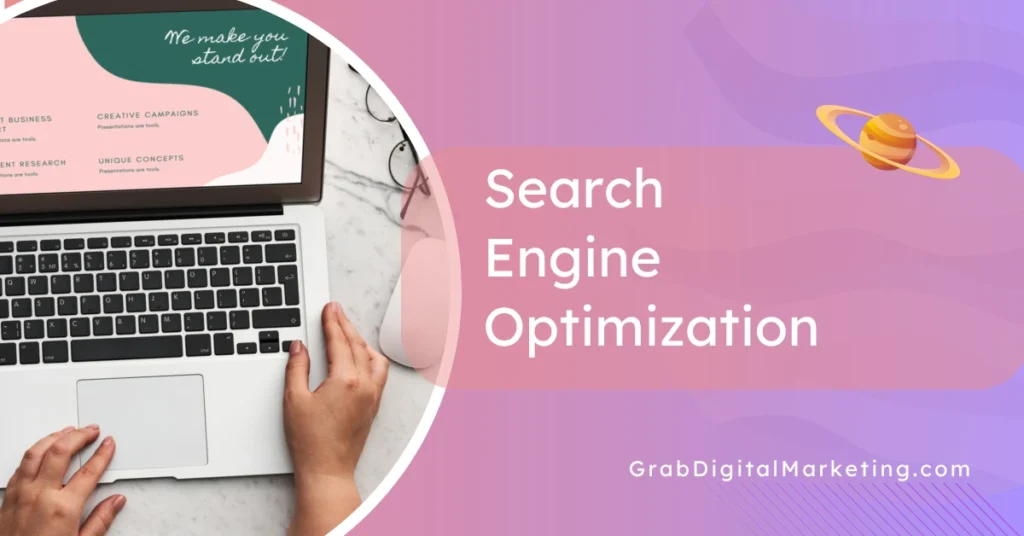
- Search Engine Optimization, widely known as SEO, is a crucial digital marketing practice that helps websites improve their visibility on search engines like Google. For Google AdSense publishers, SEO is essential because it drives organic traffic—visitors who find your site through unpaid search results—which in turn increases the chances of ad impressions and clicks, boosting your ad revenue. At its core, SEO involves optimizing your website’s content, structure, and technical elements to make it easier for search engines to understand and rank your pages for relevant search queries.
- SEO begins with thorough keyword research, which involves identifying the phrases and terms your target audience is searching for. Using tools like Google Keyword Planner or SEMrush, publishers find keywords with balanced search volume and manageable competition. Integrating these keywords naturally into your titles, headings, meta descriptions, and throughout your content helps search engines associate your pages with the right queries, making your site more discoverable.
How SEO Works
- Search Engine Optimization (SEO) is the process of enhancing your website so it appears higher in search engine results pages (SERPs), thereby attracting more organic traffic. For Google AdSense publishers, effective SEO is essential because increased organic traffic means more visitors viewing ads, which leads to higher ad impressions, more clicks, and ultimately, increased AdSense earnings. Understanding how SEO works can help publishers strategically optimize their content and site structure to boost visibility and revenue.
- The SEO process begins with search engine crawling and indexing. Search engines like Google use automated bots, called spiders or crawlers, to navigate the web. These crawlers follow links from page to page, discovering new content and assessing existing pages. Once a page is crawled, its content is analyzed and stored in Google’s index—essentially a massive database of web pages that the search engine can quickly retrieve when users search for relevant terms. Ensuring your site is easy to crawl, with a clear link structure and no technical errors, helps search engines index your pages accurately.
- After indexing, search engines use complex ranking algorithms to determine which pages best answer a user’s query. These algorithms evaluate hundreds of factors, including keyword relevance, content quality, usability, mobile-friendliness, page speed, and backlinks from other reputable sites. By optimizing your website around these factors—such as including relevant keywords naturally in your titles, headers, and content—you improve your chances of ranking higher and attracting targeted visitors.
Content Marketing:

- Content marketing is a strategic approach focused on creating and sharing valuable, relevant, and consistent content to attract and retain a clearly defined audience. For Google AdSense publishers, content marketing is a foundational tactic that helps drive quality organic traffic to a website, which in turn increases ad impressions, click-through rates (CTR), and ultimately ad revenue. Unlike traditional marketing, which often directly promotes products or services, content marketing centers on providing useful information, answering questions, or entertaining visitors. This builds trust and engagement—key factors that encourage users to spend more time on your site and interact with ads.
- Effective content marketing begins with understanding your target audience’s needs, interests, and pain points. By producing content that solves problems or offers meaningful insights, you position your website as a valuable resource. Content can take many forms, including blog posts, videos, infographics, podcasts, ebooks, and newsletters. Each format has unique benefits: blogs improve search engine rankings with fresh keyword-rich content, videos increase user engagement with dynamic visuals, and newsletters help nurture a loyal audience base by providing consistent updates.
- Content marketing works best when integrated with SEO efforts, ensuring your valuable content reaches people actively searching for related topics. For example, publishing how-to guides or in-depth articles optimized for specific keywords attracts targeted visitors who are more likely to engage with ads relevant to their interests. Moreover, consistently updating your website with fresh, high-quality content signals to search engines that your site is active and authoritative, enhancing your visibility in search results and attracting more organic traffic.
Types of Content Marketing
Content marketing is a diverse and dynamic strategy that includes multiple types of content, each serving unique purposes in attracting, engaging, and retaining audiences. For Google AdSense publishers, understanding and leveraging different content types is crucial to attract targeted traffic, increase user engagement, and maximize ad revenue. Diverse content caters to different audience preferences and browsing habits, making it essential to incorporate a mix of formats in your content marketing plan. One of the most common and effective types is blog posts. Blogs allow publishers to regularly publish fresh, keyword-optimized content that answers audience questions, solves problems, and builds authority on relevant topics. Blog posts improve SEO by targeting specific keywords and providing valuable information, which drives organic traffic—critical for sustainable AdSense earnings.
Social Media Marketing:
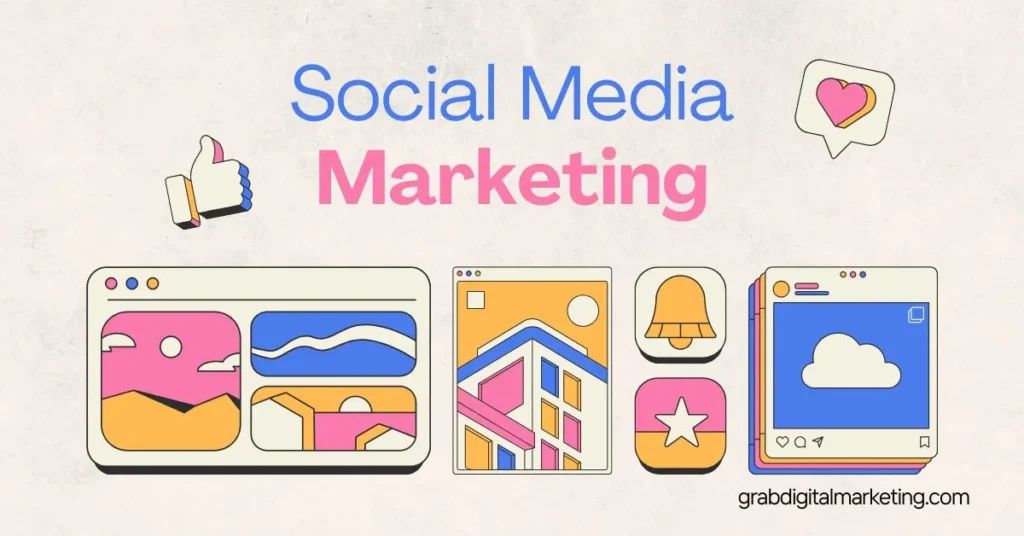
Social media marketing is an essential digital marketing strategy that involves promoting content, engaging audiences, and building brand awareness across social media platforms like Facebook, Instagram, Twitter, LinkedIn, TikTok, and YouTube. For Google AdSense publishers, social media marketing plays a crucial role in driving targeted traffic to websites, which increases page views and ad impressions—key factors in boosting AdSense revenue. Unlike purely search-engine-based traffic, social media allows publishers to connect directly with audiences through engaging posts, stories, videos, and promotions, creating a loyal community that frequently visits their site and interacts with ads. The first step in leveraging social media marketing for AdSense is developing a clear strategy aligned with your website’s niche and audience interests. This includes selecting the right platforms where your target users spend most of their time and tailoring content specifically for each channel. For example, Instagram and TikTok are highly visual and video-centric, so eye-catching images, reels, and short videos perform best. Facebook and Twitter offer broad reach and enable conversation through posts, polls, and groups, while LinkedIn targets professionals with educational and B2B content.
What It Is
- Promoting products, services, or ideas through social platforms.
- Building relationships with current and potential customers.
- Leveraging data analytics to refine targeting and messaging.
Pay-Per-Click (PPC) Advertising:
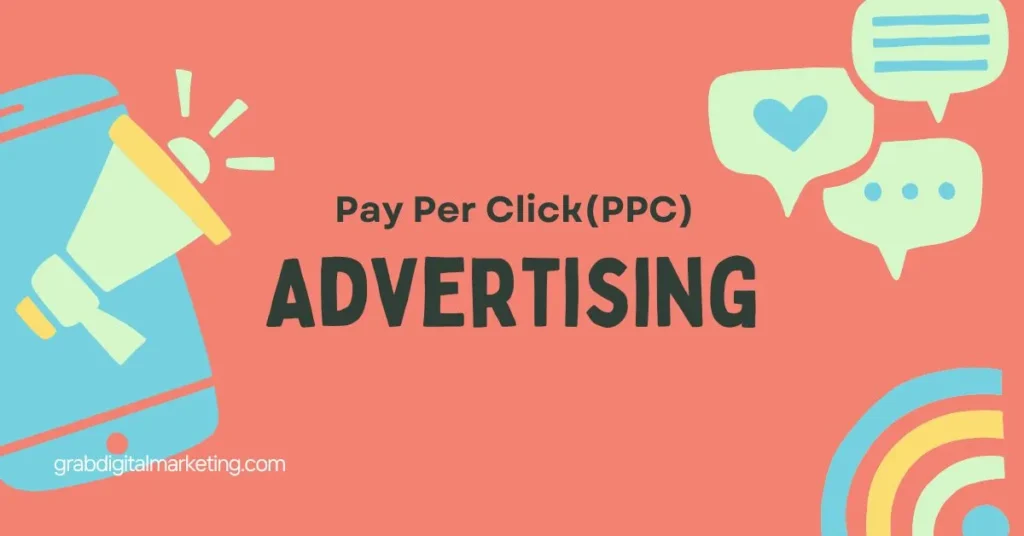
- Pay-Per-Click (PPC) advertising is a popular online marketing model where advertisers pay a fee each time their ad is clicked by users. For Google AdSense publishers, PPC is both a complementary and powerful strategy to drive targeted traffic and increase ad revenue. Unlike organic traffic sources such as SEO, which can take time to build momentum, PPC ads offer immediate visibility on search engines and other digital platforms, helping website owners quickly attract visitors who are actively searching for relevant products, services, or information.
- The primary advantage of PPC advertising is its precision targeting capabilities. PPC platforms, including Google Ads, enable advertisers to focus their budget on specific audiences based on geographic location, language, device type, demographics, behaviors, and even the time of day. This advanced targeting ensures that the ads reach users who are more likely to be interested in your site’s content, improving click-through rates (CTR) and enhancing the overall effectiveness of your ad spend. This is especially valuable for AdSense publishers aiming to attract high-quality traffic that is more engaged and likely to interact with displayed ads.
- PPC campaigns also provide flexibility and control over budgets and bidding. Advertisers can set daily or monthly spending limits and choose how much to bid for each click on their ads, allowing small publishers and large companies alike to participate effectively within their means. This budget control minimizes unnecessary spending and maximizes return on investment (ROI), making PPC a cost-effective advertising solution. Additionally, PPC ads can be paused, modified, or expanded quickly in response to campaign performance, enabling publishers to stay agile in a fast-changing online environment.
Email Marketing:
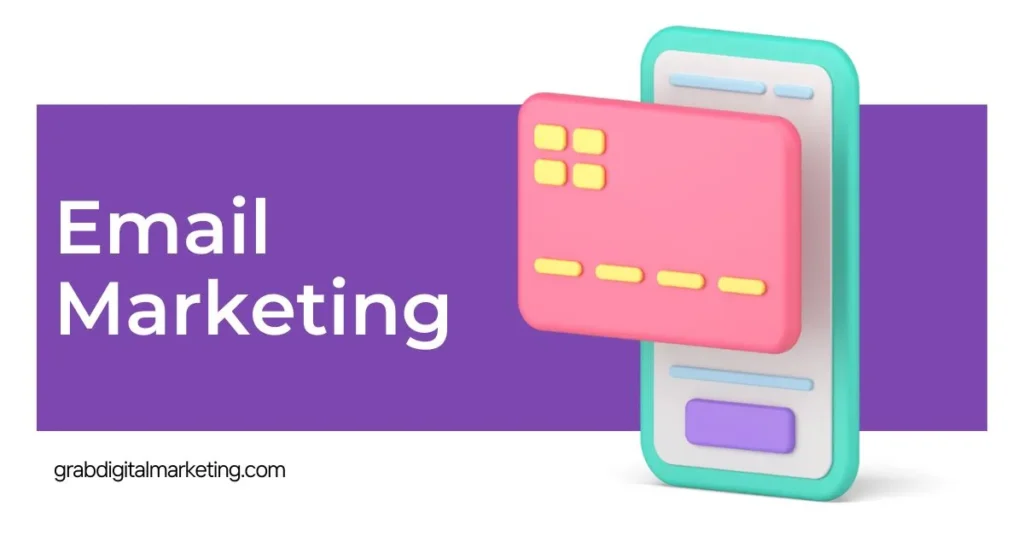
- Email marketing is a highly effective strategy for Google AdSense publishers looking to grow their audience, increase website traffic, and enhance overall monetization. While Google AdSense policies prohibit placing AdSense ads directly inside emails, publishers can still use email marketing as an essential tool to drive engaged visitors back to their websites, where ads are displayed. The core idea is to nurture relationships with subscribers by sending personalized, valuable content that encourages them to revisit the site regularly, thus increasing ad impressions and potential clicks.
- Email marketing is a highly effective strategy for Google AdSense publishers looking to grow their audience, increase website traffic, and enhance overall monetization. While Google AdSense policies prohibit placing AdSense ads directly inside emails, publishers can still use email marketing as an essential tool to drive engaged visitors back to their websites, where ads are displayed. The core idea is to nurture relationships with subscribers by sending personalized, valuable content that encourages them to revisit the site regularly, thus increasing ad impressions and potential clicks.
- One of the key benefits of email marketing is its ability to deliver direct, personalized communication to your audience. Unlike social media or search traffic, which can be unpredictable, email subscribers have willingly opted in to receive updates from you, making them highly targeted and engaged. This engagement translates into higher open rates, click-through rates, and ultimately, better conversion of visitors into AdSense revenue. Publishers can personalize newsletters based on subscriber interests, location, or behavior, increasing the relevance of the content and enhancing user experience.
Common Use Cases
- Promote products or services
- Share updates, offers, or educational content
- Welcome and onboard new users
- Re-engage inactive subscribers
- Segment users for more targeted messaging
Affiliate Marketing

- Affiliate marketing is a popular online monetization method where publishers promote products or services from other companies and earn commissions for every sale or lead generated through their referral links. When combined strategically with Google AdSense, affiliate marketing can offer a complementary revenue stream that enhances overall earning potential for website owners and content creators. While Google AdSense generates revenue primarily through pay-per-click ads, affiliate marketing rewards publishers based on user actions like purchases, making it a performance-driven form of monetization.
- Affiliate marketing is a popular online monetization method where publishers promote products or services from other companies and earn commissions for every sale or lead generated through their referral links. When combined strategically with Google AdSense, affiliate marketing can offer a complementary revenue stream that enhances overall earning potential for website owners and content creators. While Google AdSense generates revenue primarily through pay-per-click ads, affiliate marketing rewards publishers based on user actions like purchases, making it a performance-driven form of monetization.
- One of the main advantages of affiliate marketing is the control and flexibility it offers. Unlike AdSense, where Google automatically selects and displays ads based on your content and audience, affiliate marketing allows you to handpick the products or services you want to promote. This means you can choose offers that resonate with your audience and align closely with your website’s niche, boosting the likelihood of conversions and higher earnings. For instance, a tech blogger might promote specific gadgets or software tools through affiliate programs, driving relevant traffic toward targeted offers.
How It Works
- Affiliate Joins a Program: Think Amazon, Flipkart, or niche courses—many brands offer affiliate programs.
- Promotes a Product or Service: Through a blog, website, YouTube channel, email, or social media.
- Earns a Commission: When someone buys through the affiliate’s unique referral link, they earn a percentage of the sale.
Key Components
- Affiliate Link: A unique URL that tracks who referred the customer.
- Tracking & Attribution: Platforms use cookies and analytics to assign credit.
- Commission Structure: Could be pay-per-sale, pay-per-click, or pay-per-lead.
Common Affiliate Channels
- Blogging & Niche Sites (e.g. tech gear reviews or digital course lists)
- Influencers on Instagram, YouTube, etc.
- Email campaigns or comparison newsletters
- Coupon sites and deal aggregators
Why It’s Powerful
- Low Barrier to Entry: No need to create your own product.
- Scalable Income: Promoting to a wider audience = more earnings.
- Great for Content Creators: Ties in naturally with education blogs or course platforms.
Influencer Marketing:

- Influencer marketing has emerged as a powerful digital strategy that leverages the reach and credibility of social media personalities, bloggers, and content creators to promote brands and products. For Google AdSense publishers, influencer marketing offers exciting opportunities to enhance content visibility, increase website traffic, and ultimately boost ad revenue. By collaborating with influencers whose followers align with a publisher’s niche, websites can attract highly targeted audiences, improve engagement, and elevate their online presence in ways that complement traditional ad monetization methods like AdSense.
- Influencer marketing works by partnering with trusted individuals who create authentic content that resonates with their audience. These influencers share sponsored posts, stories, or videos featuring products or services, effectively introducing brands to potential customers in a more natural and relatable way than conventional advertising. For AdSense publishers, incorporating influencer content or collaborations can help attract more qualified visitors who are more likely to stay longer, explore additional content, and engage with ads displayed on the site. This increased user engagement directly translates into higher ad impressions and click-through rates, enhancing overall earnings.
- One notable benefit of combining influencer marketing with Google AdSense is the potential for multi-channel audience growth. Influencers bring loyal, social-media-savvy followers who may not be reached through organic search or paid search alone. When influencer-driven traffic lands on AdSense-enabled websites, it diversifies the traffic mix and improves monetization potential. Furthermore, running targeted Google Ads in tandem with influencer campaigns can amplify reach and reinforce brand awareness, creating multiple touchpoints that increase the chances of conversions and higher revenue.
Who Are Influencers?
- Social Media Creators: Instagram, YouTube, TikTok, LinkedIn, etc.
- Niche Experts: Fitness coaches, tech reviewers, educators, etc.
- Celebrities & Public Figures: Actors, athletes, or well-known personalities.
How It Works ?
- A brand partners with an influencer whose audience aligns with its target market.
- The influencer creates content (posts, videos, stories) featuring the brand.
- Followers engage with the content, often leading to increased awareness or sales.
Why It’s Effective
Authenticity:
- Influencers build trust through relatable content.
- Reach: They tap into engaged communities across platforms.
- Social Proof: Recommendations from influencers feel more credible than ads.
Targeted Impact: Brands can choose influencers based on niche, location, or audience behavior
Analytics and Data Tracking:
- Analytics and data tracking are fundamental tools for any publisher using Google AdSense, as they provide the insights needed to optimize ad performance, increase revenue, and enhance user experience. Google AdSense integrates seamlessly with Google Analytics, allowing publishers to monitor how visitors interact with their site and ads, understand traffic sources, and identify which pages generate the most income. This combination of real-time tracking and comprehensive reporting helps website owners make data-driven decisions to improve their monetization strategy effectively.
- One of the key benefits of using analytics with AdSense is the ability to track critical performance metrics such as earnings, impressions, click-through rates (CTR), cost per click (CPC), and revenue per thousand impressions (RPM). These metrics provide a clear picture of how ads are performing and which placements or formats yield the best results. For example, a high CTR indicates that users are finding ads relevant and engaging, while RPM helps publishers understand how much revenue they are generating per thousand page views. Monitoring these metrics helps identify opportunities to adjust ad placement, experiment with different ad formats, or optimize content that attracts high-value traffic.
What Is It?
Data Tracking: The process of recording user behavior—like clicks, scrolls, purchases, or time spent on a page2.
Analytics: The interpretation of that data to uncover patterns, trends, and actionable insights.
Together, they form a feedback loop that guides everything from campaign tweaks to product improvements.
Why It’s Crucial
Informed Decisions: Know what’s working and what’s not—based on real behavior, not assumptions.
Customer Understanding: Learn what your audience values, how they navigate your site, and what drives conversions.
Optimization: Refine your messaging, design, and funnels to boost ROI and engagement
Why is Digital Marketing Important?
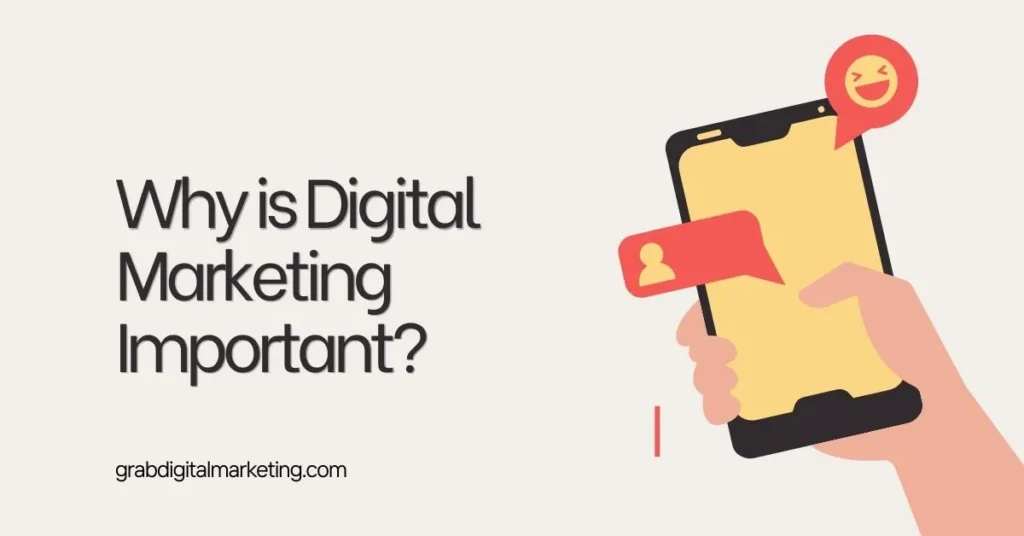
- Digital marketing has become a cornerstone for businesses and content creators aiming to succeed in today’s connected world. For Google AdSense publishers, digital marketing is particularly crucial because it drives targeted traffic to websites, increases visibility, and maximizes ad revenue. Unlike traditional marketing, which relies on print, TV, or radio ads, digital marketing leverages online channels such as search engines, social media, email, and websites to reach and engage audiences more effectively and affordably.
- One of the primary reasons digital marketing is important for AdSense publishers is its ability to deliver highly targeted and measurable traffic. Using tools like SEO, pay-per-click (PPC) advertising, and social media marketing, publishers can attract visitors who are actively searching for or interested in their content niche. This targeted traffic has a higher likelihood of engaging with relevant ads, increasing click-through rates (CTR) and boosting AdSense earnings. Moreover, digital marketing channels offer detailed analytics, enabling publishers to track user behavior and fine-tune their strategies to optimize revenue continuously.
- Digital marketing is also a powerful driver for brand awareness and audience growth. Through content marketing, influencer collaborations, and regular social media interaction, publishers build a loyal community that frequently visits their websites. This steady traffic flow translates into consistent ad impressions and revenue. By integrating digital marketing strategies such as email campaigns or remarketing ads, publishers keep their audiences engaged and returning, which is vital for sustainable monetization with AdSense.
Conclusion
Digital marketing has revolutionized the way businesses interact with their customers. By leveraging various digital channels and strategies, businesses can reach a wider audience, achieve measurable results, and create meaningful connections with their customers. As technology continues to advance, staying updated with the latest digital marketing trends and techniques will be crucial for businesses aiming to thrive in the digital age. Embracing digital marketing is not just an option; it’s a necessity for businesses looking to stay relevant and competitive in today’s fast-paced world.

